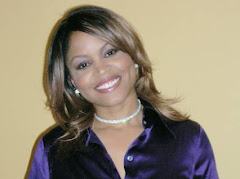As I mentioned in my last blog, when I attended Patchwerk Studio's Music University IV, Coach K, Snake, and Melinda Dancil all stated that artists and artist managers need to be creative with their money. In other words, artists and we as songwriters must be smart with our money. You might not have agreed with me that paying $75 for people to attend Patchwerk's Music University IV was relatively expensive for a one-day conference. Some of you may not have even hesitated to spend the money. That's great. But I've decided to be more conservative, i.e. smart or creative, with my time and money. And I heard this said also from DJ Tony Neal at the Southeastern Music Awards in January 2008. At that event, he cautioned the indie artists about looking better than the major label artists who have deals, especially when the indie artists aren't working and do not have a deal but have wrapped vans, bling, designer clothes, and other expensive items to promote themselves. In other words, make sure you are getting your money legally, first! Then next stay within your budget and use your money for things that are really going to enhance and further your career. So some things just simply aren't worth my money.
Here's 6 tips on how to be creative with your music money (more will follow in future blogs):
1. Instead of continuously buying studio time, consider investing in a home recording studio. You can go to outlet stores, Guitar Center, and other music gear retail stores and buy music recording software (such as Pro Tools, Logic, Cake Walk, Fruity Loops, Nuendo, etc.) and equipment (mics, cords, headphones, speakers, mixer, and compressor) for approximately $2,500 - $3,500 depending upon the brand of the equipment.
2. Instead of buying cheap music equipment, be smart with your money: invest in quality equipment.
3. Want quality recordings? Invest in plug-ins. Invest in yourself to learn to use it or build a relationship with a studio engineer or a place that will mix and master your records.
4. If you a ghost songwriter and you have an okay voice and you pay to have other singers sing your songs for you, consider investing in a vocal coach instead. Yes, they can charge on average $25/hr to $100/hr. But again, you will recoup that money over time when you don't have to wait for an artist to fit your demo work into their time, when you don't have to pay anyone else to sing your songs, when you can sing the song exactly how you want it sung without having to spend time with vocal production having to teach the song to someone else, and when you save time.
5. If you press up a lot of CDs, it may be smart to purchase a CD/DVD burner instead of continuously using a CD duplication service.
6. Even smarter, purchase jump drives to store your music and to pass out to people. It holds more music than a CD/DVD. It won't skip and you won't have problems with scratches. However, because jump drives are so small, I do recommend buying something like a key chain or lanyard (if your jump drives doesn't come with one) to help you and whoever you give the jump drive to, to keep up with your jump drive.
Thedy B, Attoprney/Songwriter
Hits A Million, LLC
http://myspace.com/hitsamillionllc
http://hitsamillion.ning.com/
Wednesday, February 20, 2008
Creative Uses of Your Music Money
Labels:
budget,
creative,
creativity,
invest,
money,
music business,
music money,
saving money















